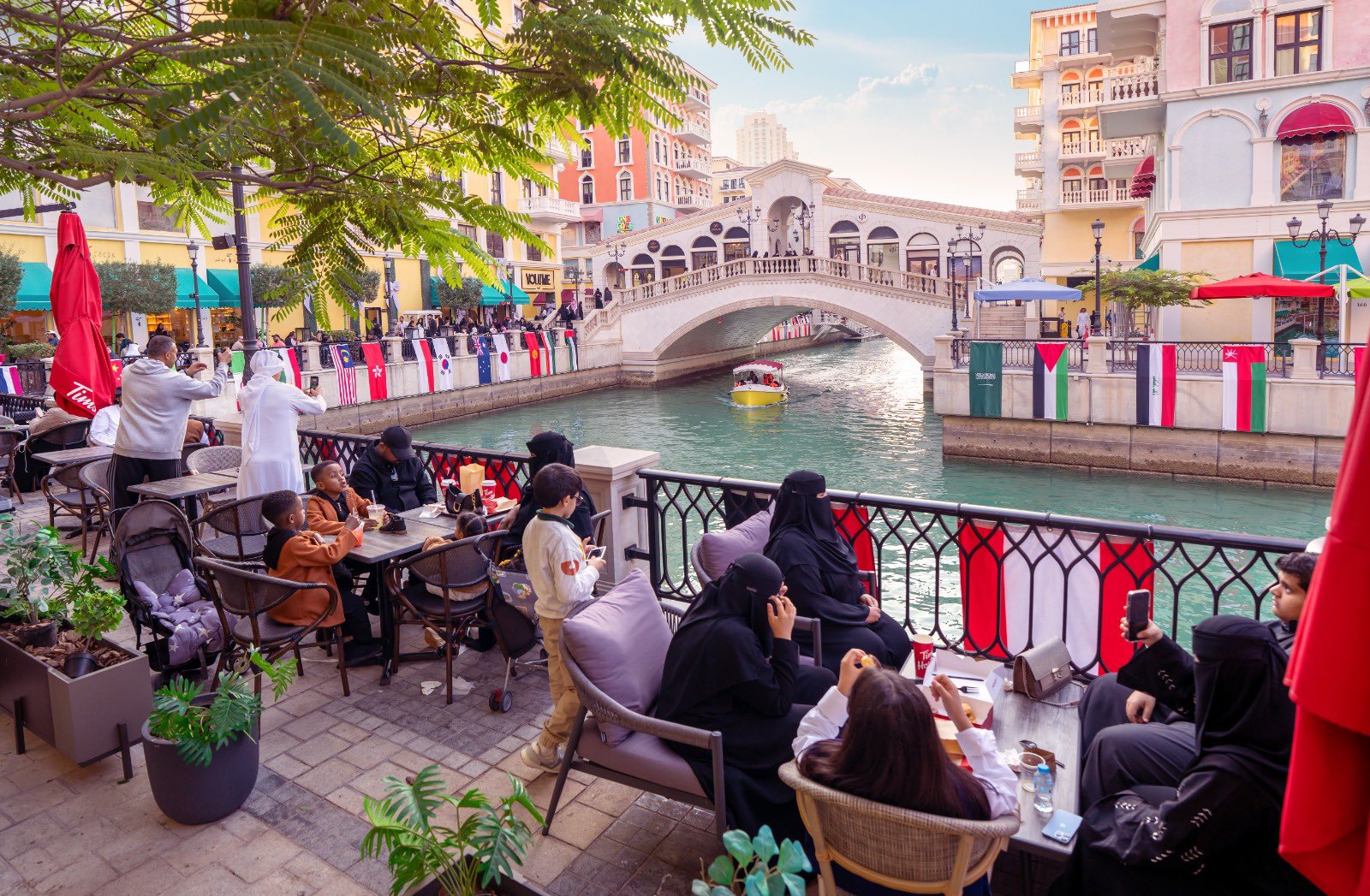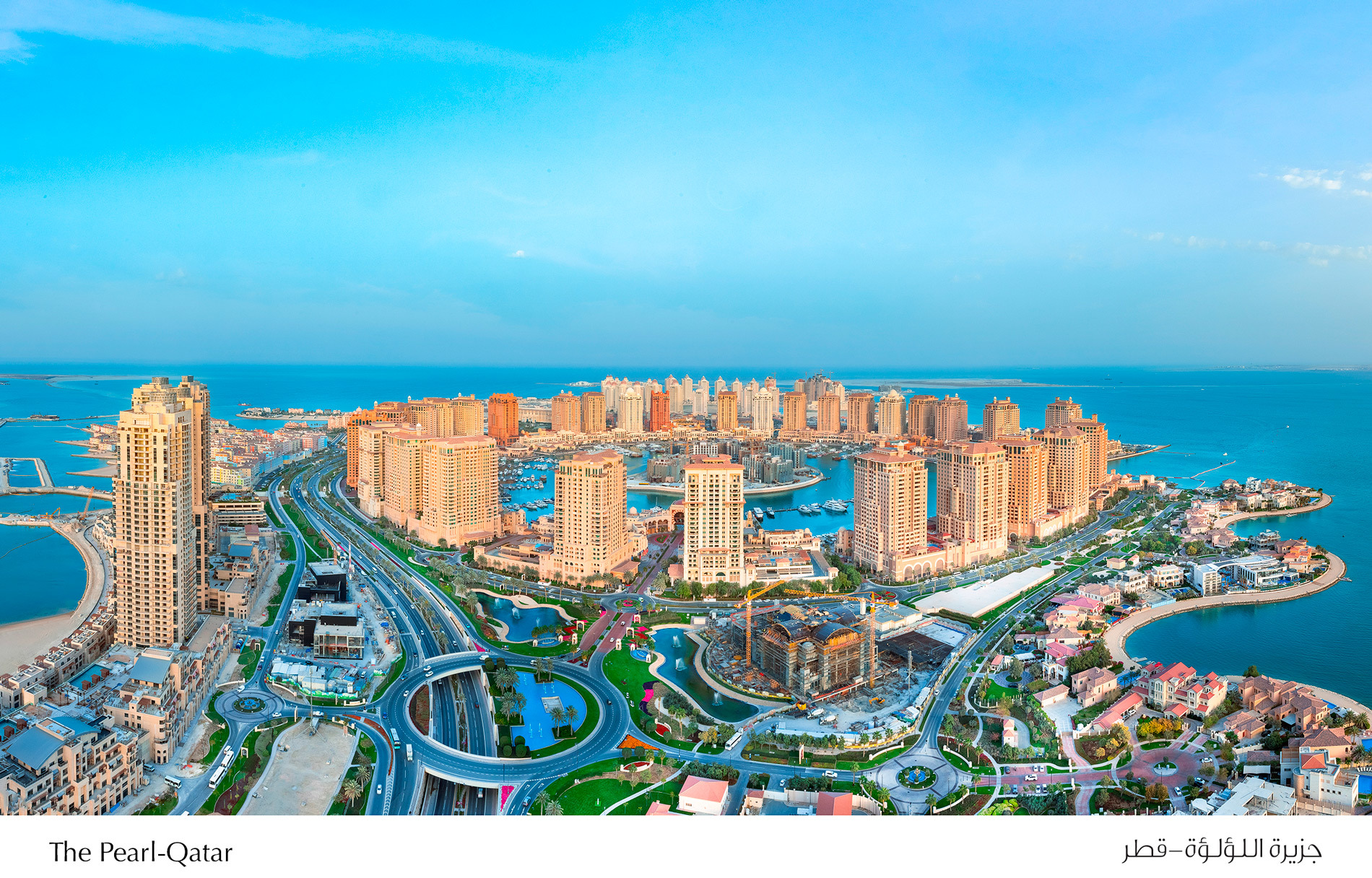A symbol of high-end living and modern elegance, The Pearl Island stands as one of Qatar’s most iconic lifestyle destinations. More than just an island, it offers a complete urban experience where architectural brilliance, cultural diversity, and luxurious amenities meet.
.jpg)
Spanning Riviera-inspired waterfronts and Mediterranean-style promenades, The Pearl has become synonymous with sophistication, recreation, and cosmopolitan living in the heart of Doha.
Walking through the island, visitors encounter an ever-changing tapestry of atmospheres. Porto Arabia mirrors the charm of a European Riviera, with its curved marina and upscale esplanades buzzing day and night. Medina Centrale embraces a more contemporary, urban mood, offering plazas, gardens, and buzzing entertainment spots that create a lively community vibe.
.jpg)
Meanwhile, Qanat Quartier, with its pastel-colored facades, pedestrian-friendly bridges, and serene canals, evokes an almost Venetian romance—where visitors can stroll, dine canal-side, or take a gentle gondola ride.
The culinary scene on the island is as varied as it is world-class. Upscale dining venues serve everything from freshly prepared seafood platters to artisanal desserts, while global cuisines—from French and Italian classics to pan-Asian dishes and traditional Arabic fare—reflect the island’s international spirit. Coffee houses, rooftop lounges, and marina-side terraces add to the wealth of experiences for both casual and fine diners.

The Pearl doesn’t limit itself to dining and shopping; it is also a hub of entertainment and community. Visitors can enjoy modern cinemas, virtual reality arcades, open-air concerts, children’s play zones, and live cultural shows, ensuring that families, young travelers, and couples all find tailored experiences. The island also hosts exclusive seasonal events such as open-air art exhibitions, Eid celebrations, international food festivals, and music performances, keeping its calendar vibrant all year round.

Notably, the island integrates lifestyle with innovation. Recognized as one of Qatar’s first smart urban destinations, visitors can navigate their stay with app-based tools for reservations, parking information, live event schedules, and delivery services, turning convenience into a lifestyle standard. This careful blend of beauty and smart design highlights The Pearl’s dual role—both as a leisure sanctuary and a forward-thinking urban district.
Gewan Island: Redefining Qatar’s Vision of the Future
Just off the shores of The Pearl, Gewan Island emerges as Qatar’s bold leap into futuristic tourism and city design. While The Pearl celebrates elegance and tradition, Gewan symbolizes innovation and next-generation hospitality.

The centerpiece of Gewan is the Crystal Walkway, already drawing international acclaim as the longest air-conditioned commercial promenade in the world. Covering 11,000 square meters, this groundbreaking attraction transforms shopping and leisure into an immersive art form. Divided into five imaginative themed worlds—Desert, Ice, Forest, Sea, and Machines—the walkway comes alive with interactive crystals that light up dynamically in response to motion and sound. This spectacle, awarded a Guinness World Record, redefines the concept of retail and public entertainment spaces.

Supporting this futuristic environment are smart technologies integrated into the island’s fabric. Artificial intelligence, intelligent energy systems, and IoT-based services automate everything from climate control to dynamic lighting, ensuring both sustainability and guest comfort are prioritized.
Adding to Gewan’s prestige is the soon-to-open Corinthia Gewan Hotel, destined to become a jewel of regional hospitality. Modeled after the grandeur of European palaces, the hotel will feature 110 luxury rooms and suites, a lavish spa, multiple fine-dining outlets, a private beach club, and a golf course overlooking the sea. Its ballroom, capable of hosting up to 1,000 guests, positions it as one of Qatar’s premier venues for international events, weddings, and corporate gatherings.

Together, The Pearl Island and Gewan Island offer two sides of Qatar’s evolving tourism and lifestyle vision. While one delights with culture, elegance, and cosmopolitan flair, the other pushes the boundaries of imagination, technology, and architectural daring—making them essential destinations for anyone looking to experience the country’s fusion of tradition and innovation.





.jpg)

.jpg)








.jpg)
.jpg)
.jpg)
.jpg)


.jpg)
.jpg)

.jpg)
.jpg)





.jpg)
.jpg)
.jpg)
.jpg)










.jpg)





.jpg)
.jpg)

.jpg)




.jpg)

.jpg)

.jpg)










